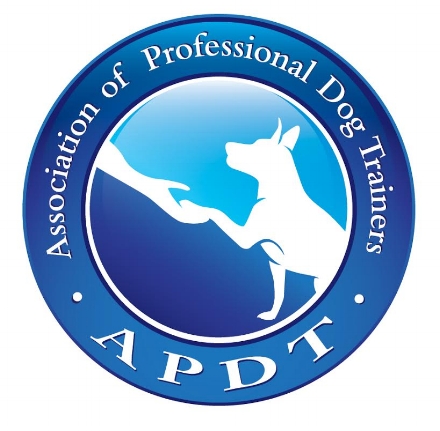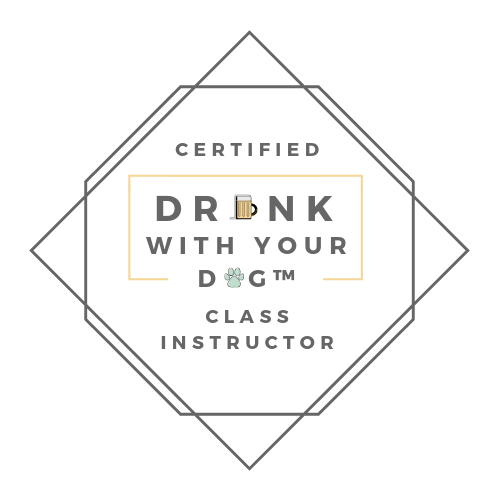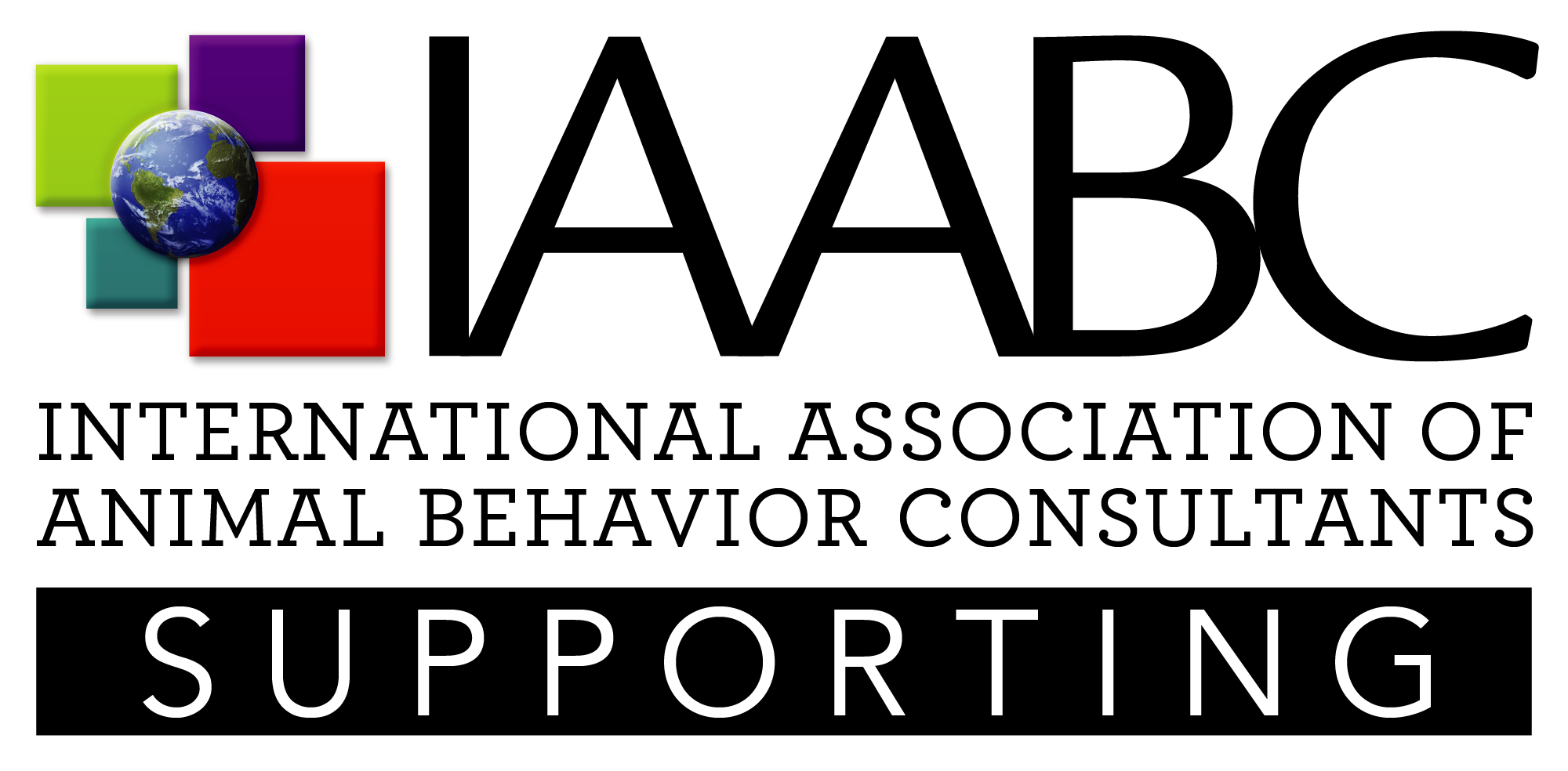FAQ
What is "force-free" training?
Force-free means no shock collars, choke chains, pinch collars, or physical force. Force free training is evidence based, using techniques vetted by decades of scientific research.
How does positive reinforcement training work?
Positive reinforcement training works by rewarding your dog for making good choices, using what THEY find most rewarding. For many dogs, it's food. Some dogs prefer play (like tug or fetch), or praise. Every dog is an individual, so we start with finding what your pup prefers, and use that as a reward to drive training. In the case of using food, we eventually phase it out of training, so your pup learns to love working for praise instead!
How long is a typical private or group training session?
Most of our sessions are one hour long, whether it's a group class or private training session, walk-n-train, or free puppy social. We find that most dogs "check out" pretty quickly, so the hour timeline is our limit to ensure you have all the info and hands-on practice you need, while making sure your dog doesn't get overwhelmed. We train in short bursts to work best with your pup's attention span, taking the time to thoroughly explain the behavior, and answer any questions you may have.
Our Puppy Prep Academy sessions run from two to four hours, and include several short breaks for rest and training, and our four hour sessions include a 20-30 minutes “lunch nap” , when appropriate.
Once you’ve registered for a group class or private training, you will receive a confirmation email with instructions specific to your upcoming session. The new client questionnaire gives us a more in-depth look at your goals, as well as insight to your dog's history and daily life. We use this information to help guide our training plan, and make sure we offer tips and lessons best suited for your specific needs and lifestyle. We will also request proof of recent vaccines. For dogs under 6 months, that would be the DHPP vaccine/boosters, as appropriate for their age. For dogs 6 months and older, we also require proof of their rabies vaccine.
The day of your session, we ask that you exercise your dog a bit shortly before training. This will help your dog focus a bit better, and make our sessions go more smoothly and our time be more productive.
You’ll need to have some fantastic treats prepared, but do NOT skip a meal if it’s near your training time- it’s a myth that you need to fast your dog prior to a training session! We recommend using 2-3 different tpyes of soft pea-sized treats, mixed with their next meal, as your “training treats” if we’re using food reinforces. We want your dog to work for both "high value" (stinky) food, as well as "low value" (plain kibble) food. This will help us eventually phase your dog off of food entirely, without making a "mafia dog" that only works when they see the goods!
How should I prepare for my first session?
This is a really common question! The whole reason we use food is because the majority of companion dogs we train find food the MOST motivating thing to work for. It's not true for every dog, but it's true enough for most, so we start there.
You don't work for free, right? It's nice to get recognition for a job well done, but it certainly doesn't pay our bills. As far as we know, dogs don't have the same "big picture" view of the world as we do (they don't fully understand that we work to pay for their home, food, toys, treats, bed, etc), they need a more immediate "paycheck" for doing something. We ask them to sit, and in the beginning, they get a reward (e.g. a treat) every time. They also get a verbal marker like "good puppy" to go along with it, which helps us eventually stop using food, and just use that "good puppy" as their paycheck. Of course, some dogs just aren't food motivated, or may have health concerns that prevent the use of food. In that case, your trainer will discuss alternatives best suited for your dog's situation.
What if I don't want to use food?
While a popular option in some areas, we don't believe that board and training programs are the best choice for most family dogs. While we might say our business is dog training, in reality our business is to train YOU to train your dog! We will have a limited time to work with your pup, while you will have a lifetime. Our goal is to equip you with the skills, information, and confidence to continue training throughout your dog's life. We firmly believe that the mark of a truly great trainer is one that can inspire a lifetime of passion and enthusiasm for training in their human students, and while we would love to snuggle up on the couch with each and every one of our puppy students, our own dogs would be pretty bent out of shape about having to share!
Can't you just take my dog home and train him instead?
If your pup is under 6 months old, all we need is for you to register, and provide proof of the most recent vaccines administered by a veterinarian - you can upload an image of the vaccines when you register, or, request your vet clinic forward the record to our email on your behalf.
What do I need for my puppy to start Puppy Prep Academy?
Maybe! While our program is geared for puppies under 6 months old, we may make an exception to accommodate adolescent dogs based on their age, size, temperament, social skills, socialization needs, and more. This is determined on an individual basis after discussion and typically requires an evaluation before joining our sessions.
Puppies that have attended Academy sessions may also be eligible for our upcoming Daycare sessions!
Contact us for more information!
My puppy is almost 6 months old, or over 6 months old. Can they still come to Puppy Prep?
What is a typical drop off look like for Academy Classes & Daycare?
The day starts when you pull into a parking space and text our staff that you’ve arrived.We ask that you stay in your vehicle until you’ve received the all-clear from our staff to enter the building (curbside service is also available on request). This process helps us keep the entry process calm and collected for our pups with high-arousal and energy levels, and those dogs still working through their stranger-danger. Additionally, not everyone loves being mobbed by an enthusiastic dog right before work, so we have this protocol in place to respect everyone’s boundaries. If you’d like assistance bringing your dog in, at any time, let us know in your arrival text that you’d like curbside service.
Once you receive the all-clear, you’ll enter the building (through the glass door facing Franklin Street), and head down the hall, where our staff will greet you and get your pup checked in. We will verify the last name of your pup, and place a slip lead over their head to secure them. At this point, you’ll remove their gear (our pups play naked), and take it with you. From there, our staff will walk your pup into our facility and to the appropriate play group.
Can I tour your facility before signing up?
Absolutely! We’d be thrilled to show off our space.
We can accommodate both in-person tours during non-peak hours, or virtual tours during peak-playtime so you can get a sneak peek at what a typical day might look like. We strongly encourage you to contact us to make a reservation for a tour, as we cannot guarantee we will have the staff to host a tour for drop-ins. Drop-in tour requests are not guaranteed, as staffing may vary throughout the day, and our number one priority is the safety of the dogs in our care.
Due to the nature of our many programs, you may not be able to fully enter and tour, depending on what sessions are being held (e.g. tours will not be given when classes for reactive or fear-aggressive dogs are being held). For safety reasons, we do not allow clients to join in a daycare or puppy class (no matter how cute those pups are, or how much of a dog lover you might be).
Do you have live-streams of your sessions?
In our experience, publicly accessible cameras/streaming sessions present significant safety and privacy concerns, including previous harassment and other unsafe behavior directed towards both staff and clients.
We do post photos and videos on social media frequently, and send digital report cards with photos after your pup’s session.
Do you have breed restrictions?
No! Every dog is an individual and will be evaluated as such. While breed-specific tendencies may come into play with behavior (e.g. Aussies like to chase), we do not ban or restrict any breed. Our temperament tests, ongoing evaluations, and carefully managed groups separated by size and temperment are structured to keep pups safe, group dynamics calm and manageable, and set each dog in our care up for success.





